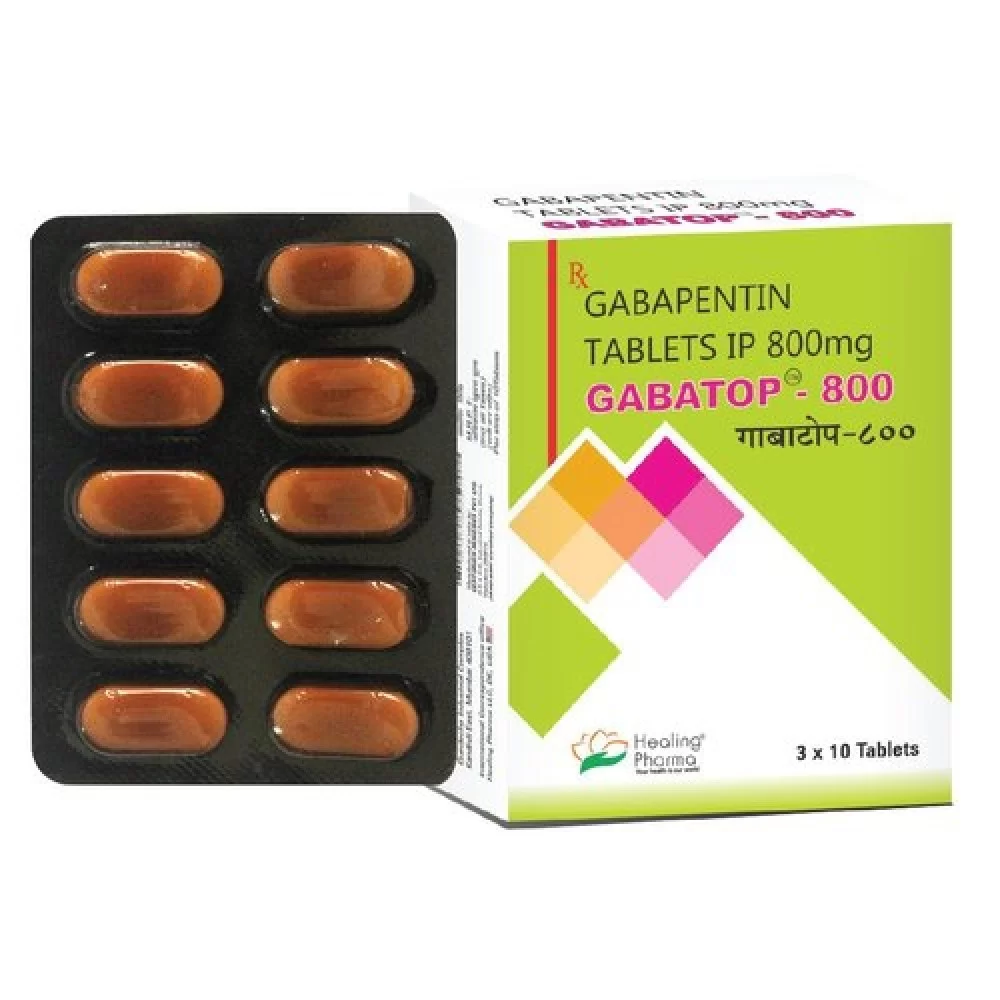What is Gabapentin 800 mg Used For? Complete Guide
-
Gabapentin 800 mg is a commonly prescribed medication that has been used to treat a variety of conditions, including nerve pain, seizures, and certain anxiety disorders. Available in different dosages, including the 800 mg tablet, it is essential to understand how this medication works, what it is used for, and its potential side effects. In this complete guide, we’ll dive deep into what Gabapentin 800 mg is used for, how it works, and important considerations for patients.

What is Gabapentin?
Gabapentin is an anticonvulsant drug that is primarily used to treat neurological disorders. It was initially developed to manage seizures but has since been found to be effective for a range of conditions involving nerve pain and certain other health issues. Gabapentin works by altering the way the nerves send messages to the brain, which helps to reduce pain and prevent seizures.What is Gabapentin 800 mg Used For?
Gabapentin 800 mg is one of the higher doses available in the Gabapentin range. It is typically prescribed for more severe cases of the conditions it is meant to treat. Here are the primary uses for Gabapentin 800 mg:-
Nerve Pain (Neuropathy)
One of the most common uses of Gabapentin 800 mg is to treat nerve pain, often caused by conditions like diabetes (diabetic neuropathy), shingles (post-herpetic neuralgia), or spinal cord injury. Gabapentin works by calming the overactive nerves, thus reducing the sensation of pain and discomfort. People suffering from nerve pain often experience sharp, burning, or shooting pain, and Gabapentin can help to alleviate these symptoms. -
Seizure Disorders (Epilepsy)
Gabapentin is also used as an adjunct treatment for seizures, particularly partial seizures. Although not the first-line treatment, Gabapentin 800 mg can help reduce the frequency and intensity of seizures when used in combination with other anti-seizure medications. It works by stabilizing electrical activity in the brain, preventing abnormal nerve signals that cause seizures. -
Restless Leg Syndrome (RLS)
Gabapentin has been found to be helpful in managing symptoms of Restless Leg Syndrome (RLS), a condition that causes an uncontrollable urge to move the legs, usually accompanied by unpleasant sensations. The 800 mg dose can help reduce the frequency and intensity of these urges, making it easier for individuals with RLS to sleep and feel more comfortable. -
Anxiety and Panic Disorders
While not FDA-approved specifically for anxiety, Gabapentin is sometimes used off-label to treat anxiety and panic disorders. It can help reduce the physical symptoms of anxiety, such as tension, restlessness, and rapid heart rate, making it easier for individuals to manage stressful situations. -
Fibromyalgia
Fibromyalgia is a chronic condition that causes widespread muscle pain, fatigue, and sleep disturbances. Gabapentin 800 mg can be prescribed to help manage the pain and discomfort associated with fibromyalgia. It works by calming the nerve activity that contributes to pain perception. -
Hot Flashes (Menopause)
Some research suggests that Gabapentin can also be effective in reducing the severity and frequency of hot flashes, particularly in women undergoing menopause. This use is off-label but may be beneficial for women who experience hot flashes that do not respond to hormonal treatments.
How Does Gabapentin 800 mg Work?
Gabapentin works by affecting the neurotransmitters in the brain, specifically targeting the calcium channels that regulate nerve cell activity. By doing so, it reduces the release of excitatory neurotransmitters, which can help to calm the nerves and reduce pain, anxiety, and seizure activity.Dosage and Administration
The dosage of Gabapentin varies based on the condition being treated and the patient's medical history. The typical starting dose for Gabapentin 800 mg is lower, and it may be gradually increased based on the patient's response. It is important to follow the prescribing doctor's instructions carefully and avoid adjusting the dose without medical advice.Gabapentin should be taken with or without food. The tablets should be swallowed whole, and it’s important not to crush or chew them. Patients should be aware that sudden discontinuation of Gabapentin can lead to withdrawal symptoms, so it is crucial to taper off the medication under the supervision of a healthcare professional.
Side Effects of Gabapentin 800 mg
Like all medications, Gabapentin 800 mg can cause side effects. Some of the most common side effects include:Dizziness
Drowsiness
Fatigue
Swelling in the hands and feet
Nausea or vomiting
Difficulty concentrating or memory problems
Weight gain
In rare cases, Gabapentin may lead to more severe side effects, such as mood changes, depression, or thoughts of self-harm. If any of these symptoms occur, it is important to contact a healthcare provider immediately.Precautions and Warnings
Before taking Gabapentin, it’s essential to inform your doctor if you have any pre-existing conditions, especially kidney problems, as Gabapentin is primarily excreted through the kidneys. People with a history of substance abuse or addiction should also exercise caution when using Gabapentin, as misuse of the drug can lead to dependence.Gabapentin should not be used during pregnancy unless absolutely necessary, as its safety during pregnancy is not fully established. It is also recommended to avoid alcohol while taking Gabapentin, as it can increase the risk of side effects like dizziness and drowsiness.
Conclusion
Gabapentin 800 mg is a versatile medication used for treating a range of conditions, including nerve pain, seizures, and restless leg syndrome. It works by modulating nerve activity to provide relief from pain, anxiety, and other symptoms. While effective, it is essential to use Gabapentin under the guidance of a healthcare provider to minimize the risk of side effects and ensure optimal treatment.If you have been prescribed Gabapentin 800 mg, be sure to follow your doctor’s instructions and report any unusual side effects. With the proper care, Gabapentin can be a valuable tool in managing conditions that affect the nervous system and improve your quality of life.
-